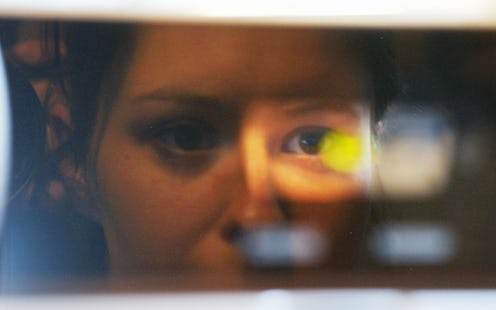News
Here's What You Should Know About The Safety Of Facial Recognition

On Tuesday, Apple finally released its much-anticipated line of new iPhones, marking the 10th anniversary of the product's creation. While the company's decision to remove the Touch ID fingerprint scanner from the newest iPhone X model has been known for the past couple months, a central question about the new security feature remains: is facial recognition technology safe? Apple says it definitely is.
However, according to a Mashable report, facial recognition technology may not be that safe at all. Facial recognition poses a significant threat because face-related biometric information is readily available — a hi-res selfie posted on Instagram could even potentially unlock a phone that employs facial recognition. (It's been reported that the facial recognition technology used by Samsung's Galaxy S8 can be fooled with a picture, though it's unclear if the new iPhones will share that problem.)
Furthermore, unlike alphanumeric passwords, biometric passwords can't be changed so easily, because you can't very easily change your face — this is especially worrisome when biometric passwords seem like they may become ubiquitous, with airlines also considering using facial recognition in lieu of boarding passes. "We can change our bank account numbers, we even can change our names, but we cannot change our faces," Adam Schwartz, a lawyer with the Electronic Frontier Foundation, told NPR. "And once the information is out there, it could be misused."
Some experts say that facial recognition is just too underdeveloped at this point, compared with the more fully fleshed-out fingerprint scanner. "Experts in the field widely agree that facial-recognition technology is not as accurate as fingerprint technology. Period," Jonathan Frankle, a PhD student at MIT's Internet Policy Research Initiative, told Mashable.
Some security experts even question the safety of allowing a company to have a scan of your face. But to put that scenario into context, it's unlikely a phone company would be asked by the government for facial biometric data — so opening your phone with your face isn't going to result in some nightmarish situation in which the NSA has your biometric data. But this is only because the government in many cases already has that data from its own databases.
"The biometric databases that the government is amassing are simply another tool, and a very powerful tool of government control," Kade Crockford, director of the Technology for Liberty Program at the ACLU of Massachusetts, told NPR in regards to Jet Blue's proposal that it dispense with boarding passes and use facial recognition.
For some digital privacy experts, the rise of facial recognition technology could bring about a nightmarish Minority Report-type situation. “What we’re really worried about facial recognition and identification is secret surveillance at a distance,” Chris Calabrese, vice president at the Center for Democracy & Technology, told NBC News.
It means that I can identify you and know where you are going in public, I can record and keep that information and you don’t know it’s happening. I know where you are, I know whether you’ve just visited a protest rally, I can identify everybody at that protest rally and I can keep records of that. It has a chilling effect.
Apple insists that the new technology is safe. It is a one in a million chance that a random person could unlock your iPhone with their face, the company said.